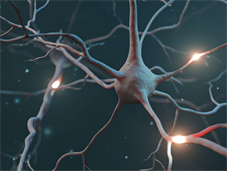New motor neurone disease research offers hope for patients
28 June 2022 - King’s will work in partnership with fellow UK researchers to discover new treatments

The National Institute for Health and Care Research (NIHR) and a group of charities has awarded £4.25 million to motor neurone disease (MND) researchers across the UK – including King’s College Hospital NHS Foundation Trust – to co-develop treatments for patients living with MND.
The new MND Collaborative Partnership will bring together researchers from King’s College Hospital NHS Foundation Trust and six UK universities, including King’s College London and University College London.
King’s College Hospital patients living with MND and their families will help inform the research by sharing their lived experience of the condition.
Motor Neurone Disease is a neurodegenerative condition and occurs when nerve cells in the brain and spinal cord – called motor neurones – stop functioning. As the condition progresses, people with MND will find everyday activities such as walking, speaking and gripping objects increasingly difficult.
In the UK, six people are diagnosed with MND every day and the only licensed drug has little effect on extending or improving life. Currently, there are no treatments available that can substantially modify disease or cure the condition.
Members of the new UK-wide MND Collaborative Partnership will work together for the next three years to develop better tests that measure MND progression and allow doctors to compare different drugs.
The researchers will also launch a study involving 1,000 people living with MND from across the UK, to better understand the disease and how people respond to new and existing treatments.
Professor Ammar Al-Chalabi, Director of the King’s College Hospital MND Care and Research Centre and co-director of research partnership, said: “Our goal is to discover meaningful MND treatments within years, not decades. This landmark funding will bring together the UK’s major MND research centres for the first time, in a coordinated national effort to find a cure.
“We now have a much better understanding of MND, so we must take this opportunity to accelerate the development of new treatments and work together to move this knowledge into the clinic and help people affected by this devastating condition.”
